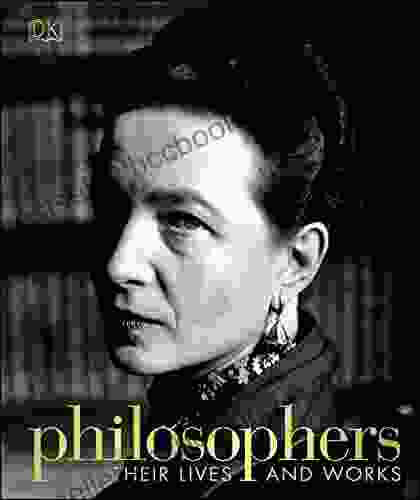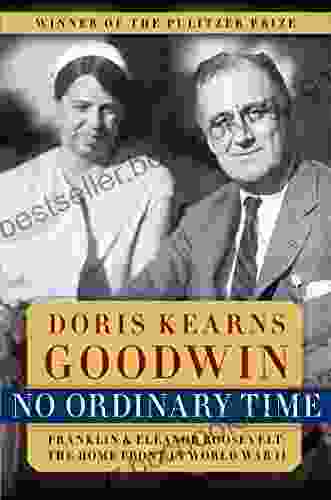Philosophers: Their Lives and Works - A Journey Through the Minds that Shaped Our World

Philosophy is the pursuit of wisdom, knowledge, and understanding of the nature of the universe, the place of humankind within it, and the conduct of human life. Philosophers have been grappling with these fundamental questions for centuries, and their insights have had a profound impact on the development of human thought and civilization.
4.8 out of 5
| Language | : | English |
| File size | : | 474785 KB |
| Text-to-Speech | : | Enabled |
| Screen Reader | : | Supported |
| Enhanced typesetting | : | Enabled |
| Word Wise | : | Enabled |
| Print length | : | 1113 pages |
In this book, we will explore the lives and works of some of the greatest philosophers in history. We will learn about their ideas on the nature of reality, the existence of God, the meaning of life, and the best way to live. We will also examine the historical context in which they lived and worked, and the influence that their ideas have had on subsequent generations.
This book is a valuable resource for anyone who is interested in philosophy, history, or the human condition. It is also a great way to learn about the different perspectives that have been offered on the most important questions that we can ask.
The Ancient Greeks
The ancient Greeks were the first to develop a systematic approach to philosophy. They believed that the universe was governed by natural laws, and that humans could use reason to understand these laws and live in harmony with them.
Some of the most influential ancient Greek philosophers include:
- Thales of Miletus (c. 624-546 BC): Thales is considered to be the first philosopher. He believed that the universe was made up of a single, unchanging substance, which he called water.
- Anaximander (c. 610-546 BC): Anaximander believed that the universe was made up of an infinite, undefined substance, which he called the apeiron. He also believed that the universe was constantly changing and evolving.
- Anaximenes (c. 585-528 BC): Anaximenes believed that the universe was made up of air. He believed that air was the primary element, and that all other elements were derived from it.
- Pythagoras (c. 570-495 BC): Pythagoras believed that the universe was governed by mathematical laws. He also believed that the soul was immortal, and that it would be reincarnated into different bodies after death.
- Heraclitus (c. 535-475 BC): Heraclitus believed that the universe was in a state of constant flux. He also believed that opposites were necessary for the existence of each other.
- Parmenides (c. 515-450 BC): Parmenides believed that the universe was a single, unchanging being. He also believed that change and motion were impossible.
- Zeno of Elea (c. 490-430 BC): Zeno was a disciple of Parmenides. He is best known for his paradoxes, which challenged the idea of motion.
- Socrates (c. 470-399 BC): Socrates is considered to be one of the greatest philosophers of all time. He believed that the unexamined life was not worth living, and he spent his life questioning others about their beliefs.
- Plato (c. 427-347 BC): Plato was a student of Socrates. He believed that the world of the senses was only a shadow of a more real world, which he called the Forms. He also believed that the soul was immortal, and that it would be reincarnated into different bodies after death.
- Aristotle (c. 384-322 BC): Aristotle was a student of Plato. He believed that the universe was made up of four elements: earth, air, fire, and water. He also believed that the soul was the form of the body, and that it died when the body died.
The Medieval Period
During the medieval period, philosophy was largely dominated by Christian thought. Christian philosophers sought to reconcile the teachings of the Church with the ideas of the ancient Greek philosophers.
Some of the most influential medieval philosophers include:
- Augustine of Hippo (354-430 AD): Augustine was a Christian theologian and philosopher. He believed that God was the creator of the universe, and that humans were created in his image. He also believed that the soul was immortal, and that it would be judged after death.
- Thomas Aquinas (1225-1274): Thomas Aquinas was a Dominican friar and philosopher. He believed that faith and reason were compatible, and that they could be used together to understand the truth about God and the world.
- Duns Scotus (1266-1308): Duns Scotus was a Franciscan friar and philosopher. He believed that the will was more important than the intellect, and that God's existence could not be proven by reason.
- William of Ockham (c. 1285-1347): William of Ockham was a Franciscan friar and philosopher. He believed that the simplest explanation was usually the correct one, and that we should not multiply entities beyond necessity.
The Renaissance
The Renaissance was a period of great intellectual and cultural change in Europe. During this period, there was a renewed interest in the ancient Greek philosophers, and many new philosophical ideas were developed.
Some of the most influential Renaissance philosophers include:
- Nicolaus Copernicus (1473-1543): Copernicus was a Polish astronomer and mathematician. He developed the heliocentric model of the solar system, which placed the sun at the center of the solar system, rather than the Earth.
- Galileo Galilei (1564-1642): Galileo was an Italian astronomer, physicist, and mathematician. He improved the telescope, and used it to make important discoveries about the solar system. He also supported the heliocentric model of the solar system.
- Francis Bacon (1561-1626): Bacon was an English philosopher and statesman. He developed a new method of scientific inquiry, which emphasized observation and experimentation. He also believed that knowledge was power.
- René Descartes (1596-1650): Descartes was a French philosopher, mathematician, and scientist. He is best known for his famous statement, "I think, therefore I am." He also developed a new system of philosophy, which was based on the idea that the mind is separate from the body.
- Thomas Hobbes (1588-1679): Hobbes was an English philosopher. He believed that human beings are naturally selfish and competitive. He also believed that the state was necessary to protect people from each other.
- John Locke (1632-1704): Locke was an English philosopher. He believed that the mind was a blank slate at birth, and that knowledge was acquired through experience. He also believed that all people are born with certain natural rights, such as the right to life, liberty, and property.
The Enlightenment
The Enlightenment was a period of philosophical and scientific inquiry that took place in Europe during the 18th century. During this period, there was a great emphasis on reason and logic, and many new philosophical ideas were developed.
Some of the most influential Enlightenment philosophers include:
- Voltaire (1694-1778): Voltaire was a French philosopher, historian, and writer. He was a leading figure in the Enlightenment, and he was known for his wit, his satire, and his defense of freedom of speech.
- Jean-Jacques Rousseau (1712-1778): Rousseau was a French philosopher, writer, and composer. He was a leading figure in the Enlightenment, and he is best known for his works on political philosophy, such as "The Social Contract." He believed that humans are naturally good, but that they are corrupted by society.
- David Hume (1711
4.8 out of 5
| Language | : | English |
| File size | : | 474785 KB |
| Text-to-Speech | : | Enabled |
| Screen Reader | : | Supported |
| Enhanced typesetting | : | Enabled |
| Word Wise | : | Enabled |
| Print length | : | 1113 pages |
Do you want to contribute by writing guest posts on this blog?
Please contact us and send us a resume of previous articles that you have written.
 Book
Book Novel
Novel Page
Page Chapter
Chapter Text
Text Story
Story Genre
Genre Reader
Reader Library
Library Paperback
Paperback E-book
E-book Magazine
Magazine Newspaper
Newspaper Paragraph
Paragraph Sentence
Sentence Bookmark
Bookmark Shelf
Shelf Glossary
Glossary Bibliography
Bibliography Foreword
Foreword Preface
Preface Synopsis
Synopsis Annotation
Annotation Footnote
Footnote Manuscript
Manuscript Scroll
Scroll Codex
Codex Tome
Tome Bestseller
Bestseller Classics
Classics Library card
Library card Narrative
Narrative Biography
Biography Autobiography
Autobiography Memoir
Memoir Reference
Reference Encyclopedia
Encyclopedia Dennis Georgatos
Dennis Georgatos Dima Zales
Dima Zales Don Rowley
Don Rowley Deedee Cummings
Deedee Cummings Diana Cooper
Diana Cooper Desmond Morris
Desmond Morris Donald D Hoffman
Donald D Hoffman Douglas Edwards
Douglas Edwards Diana Abu Jaber
Diana Abu Jaber Denis Waitley
Denis Waitley Diana B Henriques
Diana B Henriques Doyle Duke
Doyle Duke Derek Pardue
Derek Pardue Donald Woods Winnicott
Donald Woods Winnicott Don Tate
Don Tate Debra Ginsberg
Debra Ginsberg Doris J Barnes
Doris J Barnes Don Bluth
Don Bluth Debra Meyerson
Debra Meyerson Dennis L Thombs
Dennis L Thombs
Light bulbAdvertise smarter! Our strategic ad space ensures maximum exposure. Reserve your spot today!
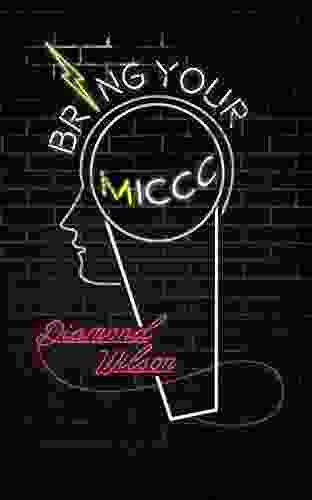
 Jaylen MitchellUnveiling the Secrets of Financial Freedom: A Comprehensive Review of Bring...
Jaylen MitchellUnveiling the Secrets of Financial Freedom: A Comprehensive Review of Bring... Robert BrowningFollow ·13.5k
Robert BrowningFollow ·13.5k Ian McEwanFollow ·3.6k
Ian McEwanFollow ·3.6k Oscar WildeFollow ·2.7k
Oscar WildeFollow ·2.7k Troy SimmonsFollow ·3.6k
Troy SimmonsFollow ·3.6k Joe SimmonsFollow ·18.2k
Joe SimmonsFollow ·18.2k D'Angelo CarterFollow ·15.7k
D'Angelo CarterFollow ·15.7k Walter SimmonsFollow ·14.6k
Walter SimmonsFollow ·14.6k Aron CoxFollow ·19.3k
Aron CoxFollow ·19.3k

 J.D. Salinger
J.D. SalingerThe Quintessential American Cook: A Culinary Journey with...
Prologue: The Man...

 Franklin Bell
Franklin BellIntroducing Romanticism: A Literary Guide to the Romantic...
Romanticism was a...
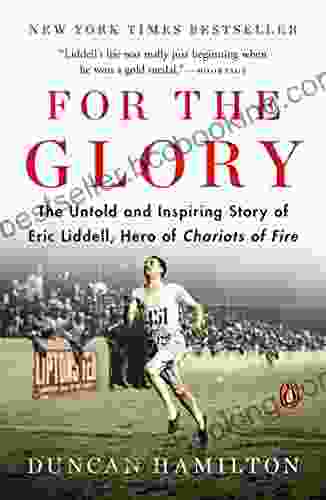
 Denzel Hayes
Denzel HayesThe Untold And Inspiring Story Of Eric Liddell Hero Of...
The Olympian Who Defied...
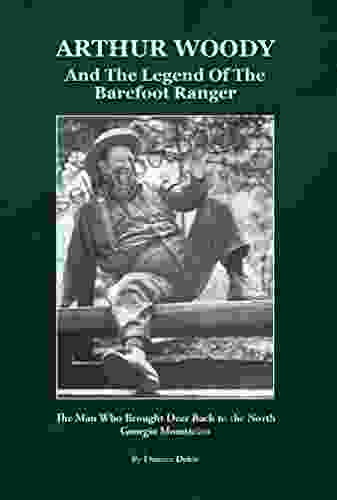
 Oscar Wilde
Oscar WildeDiscover the Enchanting Adventure of Arthur Woody and the...
Immerse Yourself in a World of Mystery,...

 Fernando Bell
Fernando BellAlibaba: The House That Jack Ma Built
The Rise of the Chinese E-Commerce Giant ...
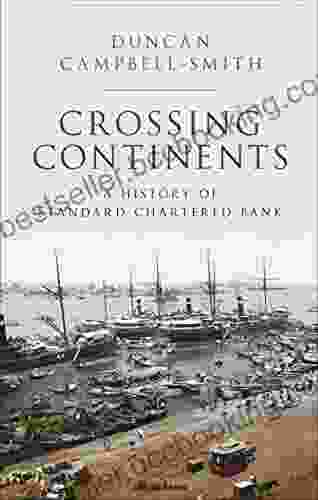
 Leo Tolstoy
Leo TolstoyCrossing Continents: A History of Standard Chartered Bank
By John M. Smith Crossing...
4.8 out of 5
| Language | : | English |
| File size | : | 474785 KB |
| Text-to-Speech | : | Enabled |
| Screen Reader | : | Supported |
| Enhanced typesetting | : | Enabled |
| Word Wise | : | Enabled |
| Print length | : | 1113 pages |


